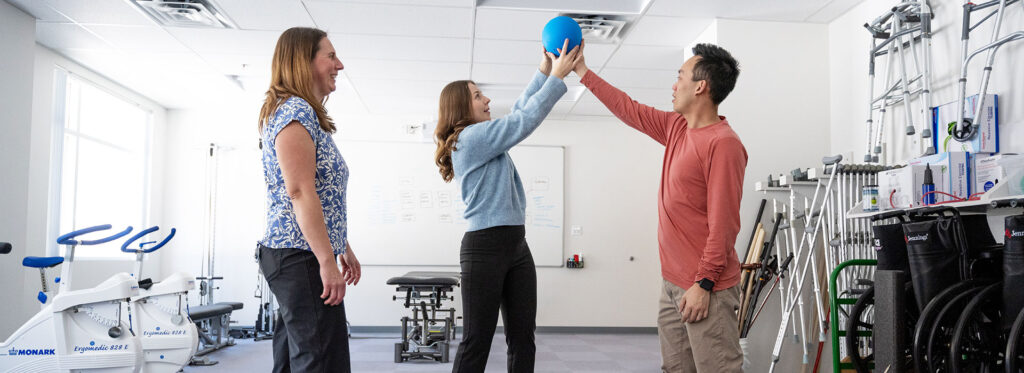
Based out of Prince George, the Master of Occupational Therapy (MOT) program was expanded last fall with the goal of inspiring more OT graduates to stay and practice in northern, rural and remote communities across B.C., as well as increase access to OT services for patients. Created with funding from the B.C. Government, the program is delivered in partnership with the University of Northern British Columbia.
Acknowledging that students are more likely to practice in their home communities, or where they complete their training, Dr. Susan Forwell, head of UBC’s department of occupational science and occupational therapy says, “This expansion provides students with the exposure they need to build deep connections with the communities, as well as learn about all the career possibilities that are in these areas.”
Talking about improving accessibility to care for Northern and rural communities, first-year MOT student Henry Liang says, “It’s a huge barrier for people, and being able to fill that gap in some capacity is what motivated me to go north.” UBC OT students at the Vancouver and Prince George sites study the same curriculum, with the coursework at the Price George site having a little more of a northern and rural focus, according to Elisha Williams, assistant professor and clinical lead for fieldwork for the MOT program in Prince George. “You’re really a jack of all trades in smaller communities, so your scope of practice can be broad. You might work in hospitals, long-term care homes, community centers and doing outreach.” The program is also expanding its focus on Indigenous wellness.
Come this fall, a new class of UBC MOT students will begin their studies in the north further expanding the program’s reach. While the MOT program in the north is creating a network of occupational therapists across the region, Dr. Forwell and her team are also laying the groundwork for the next expansion: B.C.’s Fraser Valley.
“This is how we’re supporting northern, rural and under serviced areas,” says Dr. Forwell. “By making the program more accessible across the province and providing opportunities for students to become part of the community from day one.”
Visit the Faculty of Medicine website to learn more.
Through Strategy 16: Public relevance, UBC is working to align its efforts more closely with priority issues in British Columbia and beyond, through dialogue and knowledge exchange.